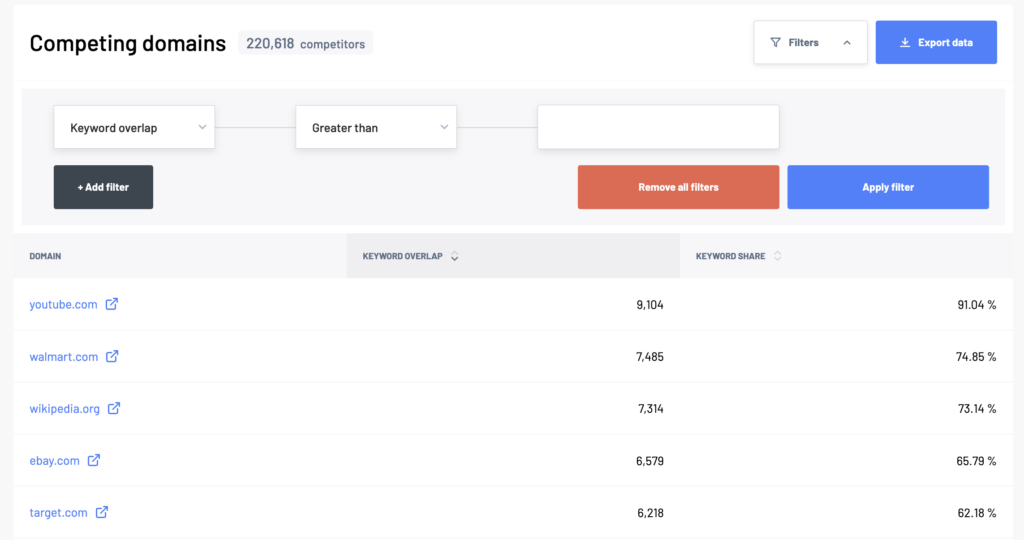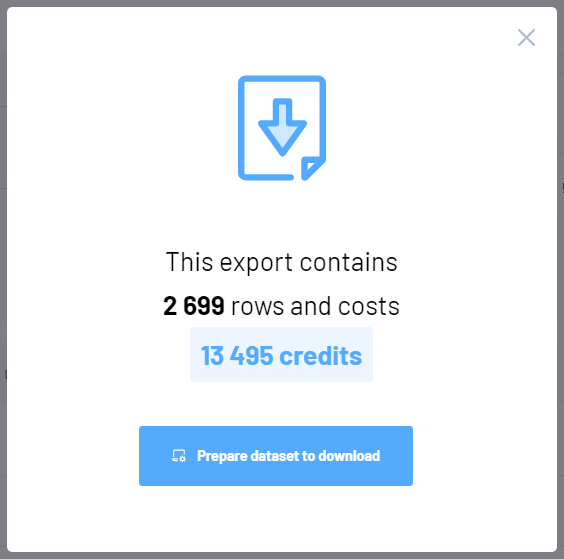Want to find out which domains often compete with your site in organic search and how many shared keywords you have? The Competing Domains feature in Website Profiler will help you do just that.
Try Website Profiler now:
Use of Competing domains
Let’s say we want to find domains that often compete with our website in organic search. So we enter our domain (e.g. amazon.com) into the Website Profiler and select the Domain + Subdomains format.
After we click on the Get Data button, the Competing Domains section will show us detailed information about the competitor domains that we are competing with in the organic search results.
Competing domains data
After analyzing the search results, the Competing Domains section will show you a table with the following data columns:
- Domain – The domain you are competing against in the organic search results.
- Keyword overlap – This column shows the number of keywords that you and your competitor cover, sorted by the highest amount.
- Keyword share – This is a percentage value that represents the percentage of keywords that are the same as your competitor’s, out of all the keywords that your subpage (the one you’re analyzing) appears on. This information will help you find out who is competing with you the most in your field.

Filters
Above the table on the right is the Filters button, which filters the results according to the following columns:
- Keyword overlap (less than, greater than, in between)
- Keyword share (less than, greater than, in between)
Exporting competing domains
The complete list of competing domains, including your keyword share and keyword overlap, can be downloaded in Excel format by clicking the Export Data button.

Competing domains section example
How to work with Competing domains data
Collected data from the Competing Domains section is a valuable source for:
- Competitor analysis – Find out which domain is your biggest competitor in organic search results and the level of competition for shared keywords.
- Link building opportunities – This section will also help you find new link building opportunities and thematic URLs that cover similar keywords to yours and from which it’s reasonable to get backlinks.
We recommend you run this competing domains analysis regularly to find out which of your competitors have started to work more on SEO and how the competition level with your landing page is increasing.
